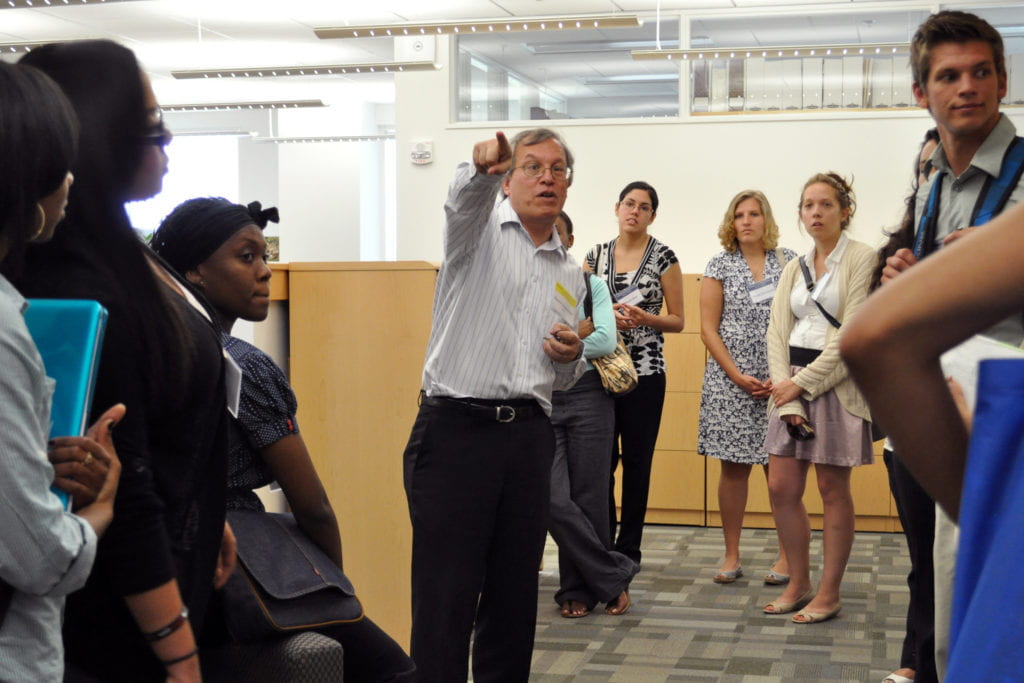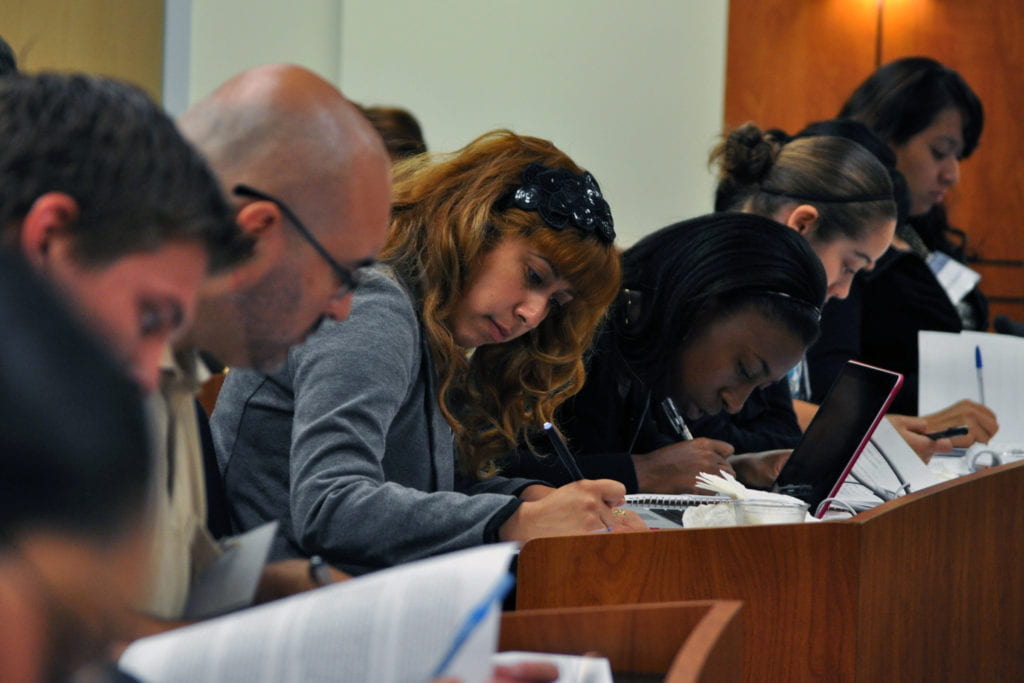Leveling the legal field
UCI’s Pre-Law Outreach Program aims to encourage, recruit disadvantaged undergrads.
On a beautiful Saturday afternoon in July, when you would most expect to see them at the beach, 40 undergraduates sat in a classroom and listened to a panel of UC Irvine law students and administrators talk about what it takes to go to law school.
The UCI School of Law’s Pre-Law Outreach Program, or POP, is sponsored by the Orange County Bar Association and Kaplan Inc. Its mission is to help students from disadvantaged backgrounds learn how to prepare for and apply to law school.
This summer, the undergraduates – nearly a third of whom were from or attended college in Orange County – ranged from sophomores to seniors, with a few recent graduates sprinkled in. To qualify for the free program, they had to have been full-time college students when they applied, maintained a grade point average of 3.0 or higher, and come from “disadvantaged” circumstances.
That last requirement is defined as having a family income within 200 percent of federal poverty guidelines, being a first-generation college student, speaking a language other than English at home, or facing other educational challenges.
The annual program consists of six Saturday sessions in June and July from 9 a.m. to 2 p.m., and participants must attend each session. In addition to an inside look at the application process, the program provides information about law school costs and the availability of financial aid, advice about succeeding in law school, and a glimpse at careers in many areas of law upon graduation, as well as a certificate for a free Law School Admissions Test review course through Kaplan Test Prep.
In two sessions this summer, participants heard from a small-law-firm practitioner, a criminal court judge, a large-firm lawyer, an immigration attorney and a Los Angeles public defender. They also were paired with law student mentors for lunch and attended a mock class with popular UCI law professor Christopher Leslie, who teaches a first-year course on contracts.
“The Pre-Law Outreach Program is a crucial part of our effort to encourage and recruit students from disadvantaged backgrounds,” said Dean Erwin Chemerinsky, who during one session led a tour of the 2-year-old law school. “We’re teaching students what to expect from law school, how to prepare for it, and how to apply. We hope one day they will be inspired to use their legal skills to give back to the community.”
Some of the best insider advice from the panel of law students and administrators was on the topic of writing a personal statement – part of every application. Janice Austin, the law school’s assistant dean for admissions, said these essays are a crucial way to demonstrate “intangibles” that don’t show up in grades or LSAT scores.
“It’s your first chance to become an advocate for yourself,” she noted.
“You have to figure out who you are,” added second-year law student Meg Tanaka. “Just show yourself – what makes you tick.”
“The most important thing is showing your passion,” said third-year law student Irina Trasovan, who moved to California from the Ukraine with her parents as a small child. “I wrote about being more than just a number.”
Azure’De Wilkins, a second-year law student from a military family in Santa Ana, said that crafting a consistent narrative is essential. “Tell a story about yourself,” she advised. “But you need a theme. Things have to connect.”
POP participants were required to submit two drafts of their personal essays. The first was edited by two law school administrators and the second by two faculty members, so each statement was edited four times.
The law students all strongly recommended taking an LSAT preparation course to master the different kinds of questions on the three-hour exam. “It’s hard to do on your own,” Trasovan said. “It takes a ton of practice.”
Third-year law student Edgar Aguilasocho noted that the sort of classes and student organizations available at a law school indicates the type of community that thrives there. Case in point, he said: The UCI School of Law has a student group dedicated to space law, which is unusual. “Check out the website,” Aguilasocho advised.
Wilkins added that a good way to get the feel of a school is to visit on Admitted Students Day. She came to UCI’s daylong event for admitted law students in April 2010, she said, “and at the end of the day, I was sold.”
“Talk to the students,” Wilkins recommended. “Visit the campus on other days too.”
Someone asked the law student panelists if they had ever had second thoughts about their decision to go to law school. “I have moments every day when I think, ‘What am I doing?’” Trasovan admitted. “It’s meeting clients that makes one realize the choice was right.”
Anna Davis, who directs pro bono and pre-law outreach programs at UCI’s law school, called the POP participants “truly inspirational” because “statistically, they should not be attending law school.”
“Almost all of them have written about the injustices they’ve witnessed in their communities – and their desire to help those vulnerable populations,” she said. “I find myself humbled and inspired by the challenges these students have overcome thus far and their focus to make it to law school.”

